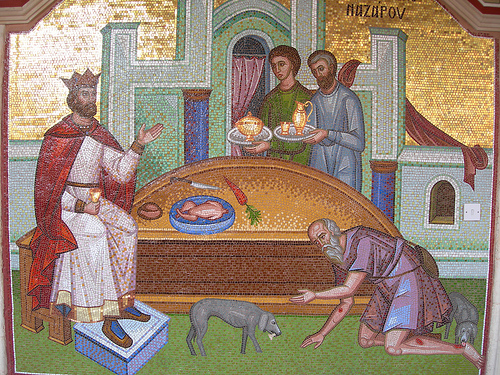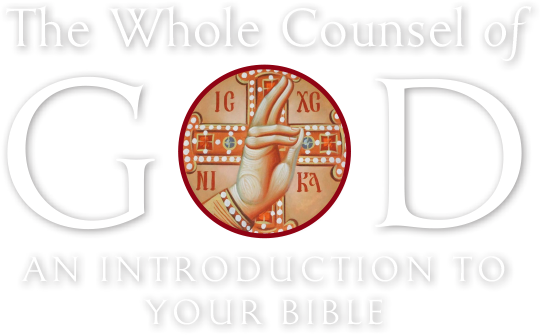 The task of a judge in rendering judgment or judging, whether in a court context or the context of the book of Judges, is to establish or restore justice. Therefore, when Yahweh condemns the leadership of Israel and Judah, a chief charge is that they have judged unjustly (e.g., Is 10:1). To judge unjustly is to show favoritism, to create laws that are oppressive and do harm, or to ignore injustice rather than righting it. Yahweh, in the Old Testament, contrasts himself to this kind of judge, human judges with whom humans have had experiences. Yahweh does not respect persons and will accept no bribe (Deut 10:17). It is because of His own character and their responsibility to bring about His justice that the judges of Israel are forbidden to take bribes or show favoritism (Deut 10:19).
The task of a judge in rendering judgment or judging, whether in a court context or the context of the book of Judges, is to establish or restore justice. Therefore, when Yahweh condemns the leadership of Israel and Judah, a chief charge is that they have judged unjustly (e.g., Is 10:1). To judge unjustly is to show favoritism, to create laws that are oppressive and do harm, or to ignore injustice rather than righting it. Yahweh, in the Old Testament, contrasts himself to this kind of judge, human judges with whom humans have had experiences. Yahweh does not respect persons and will accept no bribe (Deut 10:17). It is because of His own character and their responsibility to bring about His justice that the judges of Israel are forbidden to take bribes or show favoritism (Deut 10:19).
This is not to say, however, that the Scriptures present Yahweh as non-partisan. God associates Himself, throughout the Scriptures, with some persons and opposes others. The condemnation of favoritism in the Hebrew Scriptures takes the particular form of the condemnation of taking bribes (Ex 18:21; 23:8; Deut 27:25; 1 Sam 8:3; 2 Chron 19:7; Job 6:22; 15:34; Ps 15:5; 26:10; Prov 15:27; 17:8. 23; Ecc 7:7; Is 1:23; 5:23; 33:15; Ezek 22:12; Amos 5:12; Mic 3:11; 7:3). It seems obvious that it is not the poor and destitute who offer bribes. What is condemned is not a judge taking a side in the administration of justice. What is condemned is a judge taking the side of the wealthy and powerful for the purpose of gain, which compounds the injustice. This condemnation of favoritism toward the wealthy is continued directly in the Church (Jam 2:1-9).
Establishing justice or restoring justice once it has been violated requires taking a side or, perhaps, more appropriately, taking up a cause. In particular, it requires taking up the cause of the victims of injustice. It requires setting one’s self against the perpetrators of that injustice. Action taken on this basis will naturally be action in favor of victims and action against oppressors. This action against oppressors will always be received by them and is referred to by the text of the Scriptures as punishment for their crimes. The paradigmatic members of the weak and oppressed in the Scriptures, reflecting the reality on the ground in the Ancient Near East, are orphans and widows (Job 22:9; Is 10:2; Jer 49:11; Ezek 22:25; Mark 12:40; Jam 1:27). Yahweh is the “Father of the fatherless and protector of widows” (Ps 68:5).
God taking the side of the powerless against the powerful is not a violation of His impartiality but a consequence of it. The two are cited in the same breath: “For Yahweh, your God is God of gods and Lord of lords. He is the great, the mighty, and the fearsome God. He it is who is not partial and takes no bribe. He executes justice for the orphan and the widow. He loves the stranger, giving to him food and clothing. Love the stranger, then, because you were strangers in the land of Egypt. You will fear Yahweh your God. You will serve him and cling to him. By His name, you shall swear. He is your praise. He is your God, who has done for you these great and terrifying things that you have seen with your own eyes. Your fathers went down to Egypt with seventy people. Now Yahweh your God has made you like the stars of heaven in number” (Deut 10:17-19).
In the Torah, Yahweh commands Israel to establish and maintain justice based on His own justice, thereby participating in His action in creation. He reinforces this by pointing to the fact that they themselves have been recipients of this same favor. Yahweh allied Himself with the Hebrews, the descendants of Abraham, when they were slaves in a foreign land and powerless. He then wrought a terrible vengeance on Egypt and her gods on nascent Israel’s behalf to give her justice.
Pharaoh greeted the initial approach of Moses and Aaron with derision for precisely this reason. What concern to him were the threats of a god of slaves? There is a sharp contrast here with the gods of the nations. Basic to ancient ritual was the idea that the worship of a divine being made one more like that being. And so worship was made of gods of power, beauty, victory in war, sexual prowess, fertility, health, strength, and speed. There were no gods of weakness, victimhood, defeat, infertility, or sickness. Or at the very least, if there were such spirits, no pagan would seek to worship them.
Yahweh, the God of Israel, however, is not the embodiment of some human virtue or desire, nor is He the offerer of some particular good or virtue as opposed to others. Rather He is the Creator and the Judge of all the earth. Justice, or righteousness, is not simply a quality of personal excellence. Judgment is a divine action within creation which continuously moves and drives all created things to form, uphold, and restore the created order. He is, therefore, the avenger of the orphan and the widow while He opposes the proud.
It is, then, no surprise that when the God of Israel became incarnate, He was not born the son of the emperor or even into the Herodian dynasty. In taking upon Himself our shared human nature, Christ continued to identify with the weak, the poor, and the oppressed. He was born to a young mother under circumstances which rendered Him subject to suspicion (John 8:41). He was born into a Galilean peasant family living in a village so small it likely moved with the seasons. St. Joseph, as a day laborer, did what would today be considered “handyman” work for fellow peasants to survive. Legally, He and His family were not Roman citizens, legally categorized by Rome as “non persona.” He spent His adult life essentially homeless and dependant upon the hospitality of others. He ended His life falsely convicted, dying the most humiliating and torturous death that a tyrannical government could devise.
An oft-neglected emphasis in the New Testament author’s explanation of Christ’s resurrection is justification in the sense of vindication (Rom 4:25). There is good evidence, however, that this was a major theme in apostolic preaching (e.g. Acts 2:36; 5:30-31). Throughout the Hebrew Scriptures, Israel’s God identifies with the powerless and the poor. Throughout the Hebrew Scriptures, He promises them not only healing and restoration but also justice. He promises that the day will come when He will once again order the world aright, vindicating them and lifting them up while those who have oppressed them, profited from their misery, and done them harm will be laid low. Christ’s resurrection is the beginning of the fulfillment of that promise.

“Basic to ancient ritual was the idea that the worship of a divine being made one more like that being. And so worship was made of gods of power, beauty, victory in war, sexual prowess, fertility, health, strength, and speed. There were no gods of weakness, victimhood, defeat, infertility, or sickness. Or at the very least, if there were such spirits, no pagan would seek to worship them.”
Thank you Father. I never thought of ancient worship of the gods like that. But yes, our God, “Creator of the heavens and the earth and Judge of all” has always been the vindicator of the poor and weak. It is remarkable that some of the most devoted Christian people are those of the so called third world countries, or those in wealthy countries who are considered ‘poor’, disadvantaged. oppressed. They understand very well, by experience, what you say in this post.
Your teaching in these last two posts – justice and restoration of order – go well with our Church’s current Bible study on the Book of Revelation. The epitome of God’s current work of restoration, in anticipation of its completion. Can’t help but read it with dread and at the same time, longing for Christ’s Second Coming and the New Age.
We do best to heed His words to not forget our first love.
Thank you again, Father.
Noticing some more ‘cliff-hangering’ endings, especially with the last post 🙂